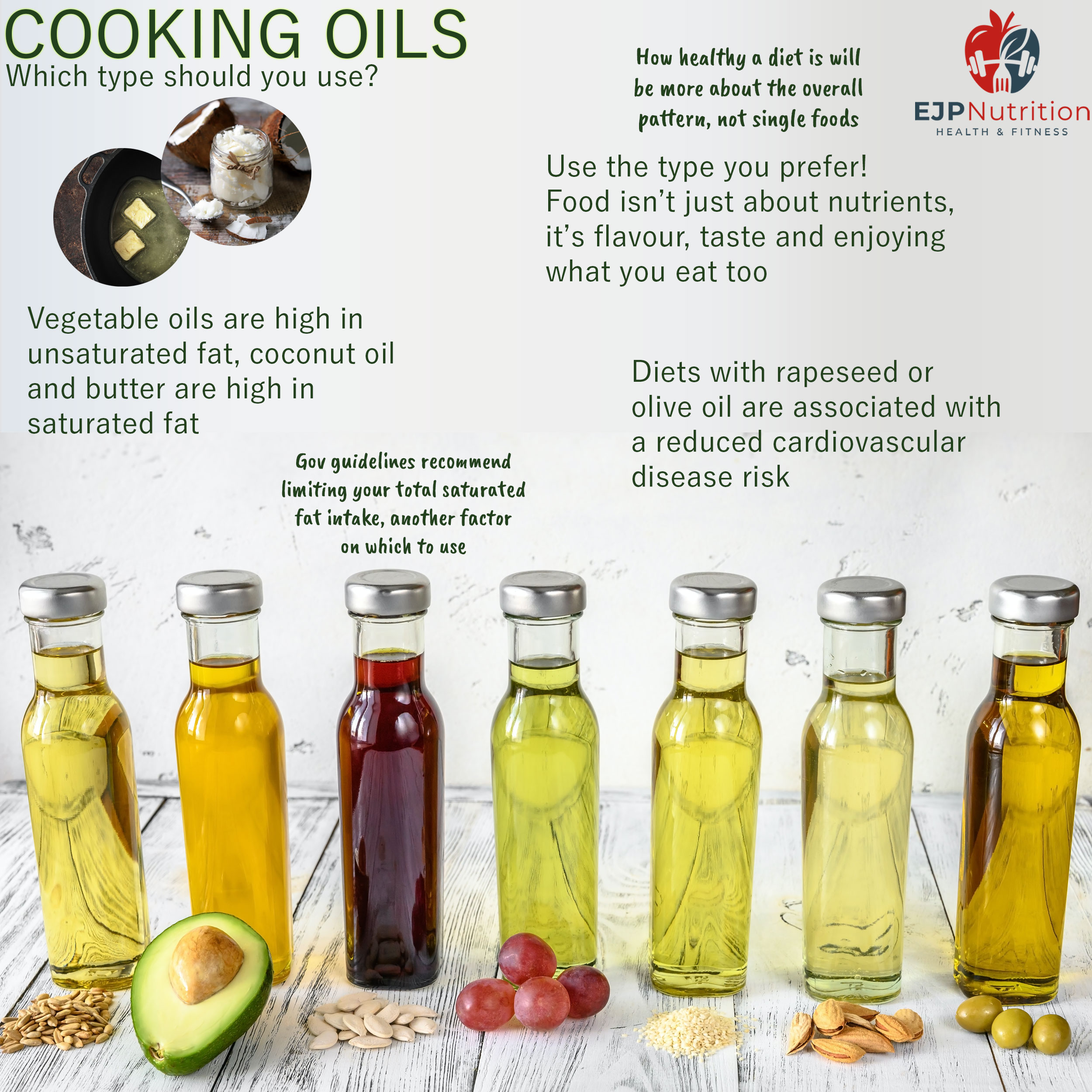If you cook at home, no doubt you use oils or butter regularly. But, what’s the best type to use? Is there even a “best” option? That takes us to the old adage, it depends!
Firstly, what we eat isn’t, or shouldn’t always only be about the nutrients and calories they provide. It’s the flavour and enjoyment of food. From that perspective use the oil you like.
Then, consider your overall dietary fat intake including the different types. Diets high in saturated fat (SFA) can raise LDL levels, which is a risk factor for CVD. Diets higher in monounsaturated fat (MUFA), polyunsaturated fat (PUFA), or those with a better P:S ratio can help improve cardiovascular health.
In the UK, the most common type of vegetable oil is rapeseed oil (canola oil for North Americans), which is high in MUFAs. This type of oil is associated with decreased CHD risk markers, likely because of its fat composition and antioxidant content.
Olive oil is a key component of the Mediterranean diet, which is often revered for its health benefits. Olive oil is high in MUFAs as well as containing polyphenols. Olive oil consumption (extra-virgin especially), is associated with a reduced risk of CVD and mortality in individuals at high cardiovascular risk.
Coconut oil has gone through phases of its healthful properties being overstated, followed by a demonisation. Like anything, the amount you consume is the key point. Coconut oil, like butter, is high in SFA. It isn’t recommended to regularly eat high amounts, per the government dietary guidelines.
This doesn’t mean you need to eliminate either. For example if your diet doesn’t contain much SFA and cooking veggies in butter means you increase your vegetable intake, this is a plus. This is why you always need context, and black and white recommendations may not be helpful. If you have more SFA in your diet, switching some of those foods for MUFA/PUFA rich foods or oils will be beneficial.
We don’t eat nutrients in isolation, and our overall dietary patterns and lifestyle will contribute more than any single aspect.
References: Lin et al 2013, Gaforio et al 2019, Guasch-Ferré et al 2014, Eyres et al 2016
Reposted from Instagram


